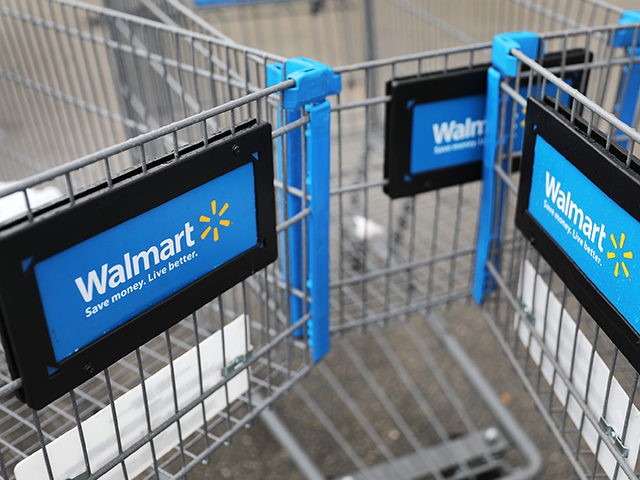The following content is sponsored by the Electronic Payments Coalition.
Big-box retailers like Walmart are doing well for themselves these days. In their August earnings report, Walmart announced revenue was up more than five percent, and their stock’s shares are up about ten percent for the year. Part of the reason for Walmart’s success is their sheer size and massive influence on suppliers, but it’s also their habit of lobbying Congress for favors.
This summer, big-box retailer lobbyists were successful in getting Senators Dick Durbin (D-IL), Roger Marshall (R-KS), J.D. Vance (R-OH), and Peter Welch (D-VT) to introduce legislation that would create new credit card routing mandates. These mandates would allow Walmart to process credit card transactions based solely on what is cheapest for them without regard to the value that consumers derive from rewards and anti-fraud programs.
Although Walmart is promoting this bill under the guise of “competition,” it’s really a ruse. The bill actually gives the federal government massive power to further control payments in Walmart’s favor, cutting out the credit unions and banks who currently invest millions in anti-fraud technology and rewards systems. This isn’t about competition, it’s about cronyism.
This “Big-Box Bait-and-Switch” would add billions of dollars to the bottom lines of mega-retailers every year while eliminating almost all the funding that goes towards popular credit card rewards programs, weakening cybersecurity protections, and reducing access to credit, particularly for Americans that need it most.
Essentially, Walmart and other big-box retailers want to enjoy the many benefits of accepting credit cards without having to pay for that privilege. Currently, most businesses pay an interchange fee of 1-3 percent of every transaction to accept credit cards. This fee has remained stable for roughly a decade. What Walmart doesn’t want to acknowledge is that financial institutions—including payment networks and banks of all sizes—are constantly investing money to improve America’s payment ecosystem to ensure that consumers and retailers have the safest and smartest payment system in the world.
It’s not the first time Walmart has lobbied for the government to make new rules that favor them. In 2010, Walmart teamed up with Target and other mega-retailers to add the Durbin Amendment to the must-pass Dodd-Frank bill. The Durbin Amendment instituted price controls on debit card fees, and it didn’t even get a hearing. Instead, Sen. Durbin slipped it into the bill as a last-minute favor. As is always the case, these price controls backfired and had a ripple effect on the entire economy. Big-box retailers got to pocket billions, while consumers lost massive benefits like debit card rewards and free checking.
Now these mega-corporations like Target and Amazon are at it again, and they are aggressively asking senators and congressmen to support these credit card routing mandates.
Congress wisely rejected a similar Big-Box Bill introduced by Senators Durbin and Marshall last year for valid reasons, and they should do so again. We must protect consumers, preserve the integrity of the payment ecosystem, and reject this detrimental and unnecessary government intervention.
It’s why seemingly every group representing local banks and credit unions has come out in opposition to the bill, and why those who care about true competition know that this bill is a Big Box Bait and Switch.

COMMENTS
Please let us know if you're having issues with commenting.